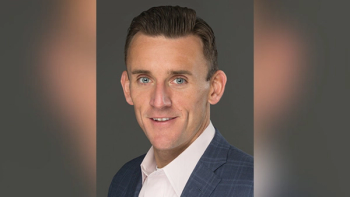
- Pharmaceutical Executive-07-01-2021
- Volume 41
- Issue 7
Pharm Exec at 40 (2000-2002)
Looking back at 2000-2002.
When people awoke on January 1, 2000, many were relieved to learn that the digital disaster known as Y2K had been averted. The fear that a worldwide software bug could wreak havoc on global computer networks was put to rest when systems didn’t crash on the first day of the 21st century. But by March, people had something new to worry about. Though the stock market had been flying high due to the tech boom of the 1990s, the bubble began to burst as thousands of dotcoms went bust. The only tech some people were willing to invest in were Microsoft’s new Windows 2000 and Sony’s PlayStation 2 (PS2) gaming console.
The US was occupied with a controversial presidential election between George W. Bush and Vice President Al Gore. The initial results spurred a recount because of disputed votes from Florida. After much ado that taught the world what a “chad” was, the Supreme Court ended the recount, announcing Bush the winner.
Beyond US boarders, the International Space Station welcomed its first crew in 2000. Since then, it has been continuously occupied by astronauts from around the world. Scientists also discovered that a hole in the ozone layer over Antarctica had grown from .62 sqaure miles to 17 square miles in just a year, spurring increased ecological concern. For entertainment, the world tuned in to the Summer Olympics being held in Sydney.
In 2001, Microsoft introduced its Xbox gaming system to compete with the PS2. Though the gaming wars continue today, the PS2 still holds the title of all-time best-selling console. Apple was also busy introducing its iPod and iTunes. An increasing number of people downloading free music from online sites caused consternation in the music industry. US primetime TV was ruled by the gameshow Who Wants to Be a Millionaire? In theaters, people watched A Beautiful Mind, based on the life of John Nash, who battled schizophrenia. Finally, the free online encyclopedia Wikipedia went live in 2001, chronicling all of these events and more.
The greatest mark on 2001, however, were the terrorist attacks that occurred on Sept. 11. It was a day that changed the world as we knew it, when hijackers took control of four commercial airliners that ultimately crashed into the Twin Towers, the Pentagon, and a field in Pennsylvania. As a result, the US invaded Afghanistan, with help from the UK. The invasion and ensuing hunt for Al-Qaeda leader Osama bin Laden kicked off the US War on Terrorism.
In 2002, the European Union voted to add 10 new countries, and the euro became the official currency of 12 EU nations. NATO also added seven nations, its largest expansion. In the UK, Queen Elizabeth The Queen Mother passed away, while Queen Elizabeth II celebrated her Golden Jubilee. Olympic fever returned with the winter games in Salt Lake City. South Korea and Japan jointly hosted the World Cup, where Brazil defeated Germany. Fashion also took on a sporty side with the popularity of tracksuits in the early 2000s.
The lines between celebrities and ordinary folk became more blurred in 2002, with Kelly Clarkson becoming the first American Idol.
The Pharma landscape
In 2000, Pfizer acquired Warner-Lambert to become the top pharma company. This deal gave Pfizer the cholesterol-lowering drug Lipitor, which became one of its blockbuster products. The effects of new DTC advertising regulations were being realized; for every $1 spent on advertising, pharma retail sales increased by $4.20 in 2000. The year also saw the first draft of the human genome and the creation of the global vaccine alliance Gavi, which increased vaccine access for children in poor countries.
In 2001, the industry came together again, agreeing to sell AIDS drugs for cost price in Africa to help fight the epidemic. Health concerns in the US turned toward a series of anthrax attacks spread via mail. As demand for Cipro—the treatment of choice—exploded, the Department of Health and Human Services threatened Bayer with patent abridgement unless it lowered its price. Eventually, Bayer deeply discounted the drug. In other news that year, the world’s first contraceptive patch, Ortho-Evra by Ortho-McNeil Pharmaceutical, was launched.
In 2002, the Best Pharmaceuticals for Children Act became law, which encouraged industry to perform pediatric studies to improve labeling. And on the last day of 2002, AbbVie’s anti-inflammatory therapy Humira became the first fully human monoclonal antibody on the market. Today, it is the top-selling drug.
Elaine Quilici is Pharm Exec’s Senior Editor. She can be reached at
Articles in this issue
over 4 years ago
Navigating PV Divergence: Compliance Tips for New Entrantsover 4 years ago
The Diversity Mindset: Benefits of Tapping External Sourcesover 4 years ago
Firsthand Views: Latinos in Pharmaover 4 years ago
Building Belonging: Pharma’s New Focus in DE&Iover 4 years ago
Today’s Accelerated Pace of Innovation: Can We Afford It?over 4 years ago
The Data Challenge in Rare Diseases and Complex Therapiesover 4 years ago
The Advantages of Stepping Back to Let Others Step Upover 4 years ago
COVID Blame Games Give Way to Lesson Learningover 4 years ago
Biden Budget ‘Wish List’ Maps FDA, Healthcare Prioritiesover 4 years ago
Opposing Short-TermismNewsletter
Lead with insight with the Pharmaceutical Executive newsletter, featuring strategic analysis, leadership trends, and market intelligence for biopharma decision-makers.




